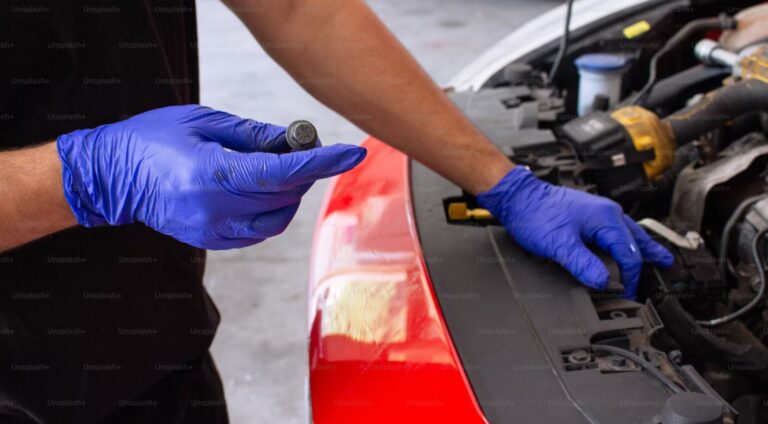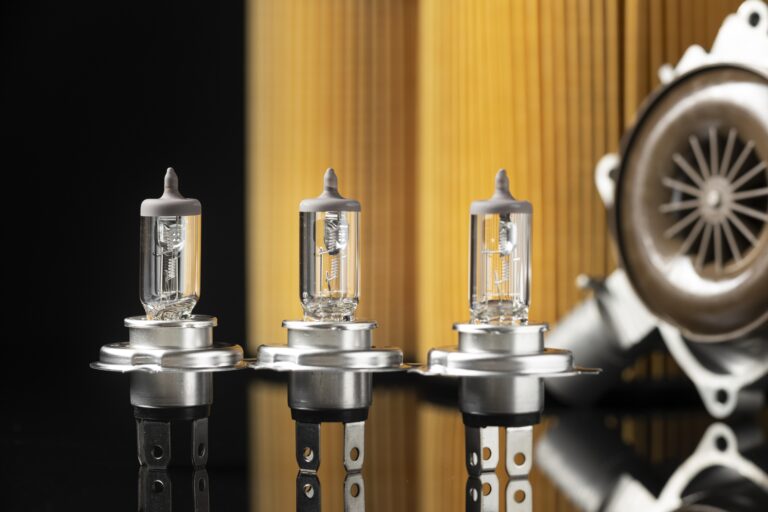What is an ASE Certificate?
The automotive industry, having the right qualifications is crucial for success. One of the most recognized and respected certifications for automotive technicians is the ASE Certificate. But what exactly is it, and how can it benefit those working in the automotive field? Let’s take a closer look.
What Does ASE Stand For?
ASE stands for the National Institute for Automotive Service Excellence. Founded in 1972, ASE is a non-profit organization dedicated to improving the quality of vehicle repair and service by certifying automotive professionals. The ASE Certificate is a widely recognized credential that demonstrates a technician’s expertise and skill in the field of automotive repair and service.
What is an ASE Certificate?
An ASE Certificate is an official recognition given to automotive technicians who have successfully passed a series of standardized exams that test their knowledge and skills in various areas of vehicle repair and maintenance. It serves as a mark of excellence and proves that a technician has met high standards of proficiency.
Technicians who earn an ASE Certificate have demonstrated their ability to work on different aspects of vehicle systems, such as:
- Engine repair
- Brake systems
- Electrical systems
- Heating and air conditioning
- Suspension and steering
- And many more areas
By obtaining this certificate, technicians show that they are committed to their profession and capable of handling complex automotive issues with the necessary expertise.
Why is an ASE Certificate Important?
Having an ASE Certificate brings numerous advantages, both for technicians and the customers they serve. Here are some reasons why this certification is important:
-
Increased Credibility: The ASE Certificate is highly respected in the automotive industry. Having it on a resume or business card demonstrates that a technician has a solid understanding of vehicle systems and is qualified to handle various repair tasks.
-
Better Job Opportunities: Many employers prefer or even require ASE certification when hiring automotive technicians. It can help technicians stand out in a competitive job market and increase their chances of being hired for higher-paying positions.
-
Higher Earning Potential: ASE-certified technicians often earn higher wages compared to non-certified technicians. The certification is seen as an investment in a technician’s skills and can result in better compensation and benefits.
-
Professional Growth: The ASE certification process requires ongoing education and testing, which ensures that technicians stay updated on the latest automotive technologies and industry standards. This allows for career advancement and continued professional development.
-
Trust with Customers: For customers, an ASE-certified technician provides peace of mind. It assures them that their vehicles are in the hands of a professional who has been trained and tested to handle complex repairs safely and efficiently.
How to Get ASE Certified
Obtaining an ASE Certificate requires passing written exams in various areas of automotive service. Here’s how the process works:
-
Meet the Eligibility Requirements: To take an ASE exam, technicians need at least two years of hands-on work experience in the field. However, technicians with a relevant degree from an accredited program may be eligible to take the exam with less work experience.
-
Prepare for the Exam: There are study guides, online courses, and other resources available to help technicians prepare for the exams. Preparation is key to passing the test, as the exams are rigorous and cover in-depth technical knowledge.
-
Take the Exam: ASE exams are typically administered at test centers across the country. The tests consist of multiple-choice questions based on real-world automotive scenarios, and the difficulty level varies depending on the area of certification.
-
Pass the Exam: Technicians must score at least 70% on each exam to pass. Once a technician passes the test, they receive their ASE certification.
-
Maintain Certification: ASE certifications are valid for five years. To maintain certification, technicians must retake and pass the exams. This ensures that certified professionals stay up-to-date with new advancements in automotive technology.
Types of ASE Certifications
ASE offers a variety of certifications in different areas of automotive service, including:
- Automobile & Light Truck Certification: This covers general automotive repair.
- Diesel Certification: For technicians who specialize in diesel engines.
- Collision Repair Certification: For technicians who focus on repairing vehicle bodies and frames.
- Advanced Engine Performance Certification: For those with a focus on diagnosing and repairing engine performance issues.
These are just a few examples, and ASE offers many other certifications for specific types of automotive service.
How Does ASE Certification Benefit Automotive Technicians?
ASE certification provides automotive technicians with several key benefits:
- Improved Job Security: With technology rapidly changing, keeping up-to-date with certifications ensures that technicians stay competitive and valuable to their employers.
- Career Advancement: The certification can lead to higher positions, such as a lead technician or service manager, which typically come with higher salaries and responsibilities.
- Personal Satisfaction: Being ASE-certified allows technicians to take pride in their work, knowing that their skills meet industry standards and that they are recognized as experts in their field.
Further Benefits of ASE Certification
While we’ve discussed the core benefits of obtaining an ASE Certificate, there are several additional advantages worth considering. For automotive technicians, certification isn’t just about increasing job opportunities—it’s also about fostering a sense of personal and professional growth. Let’s delve into more ways an ASE certificate can benefit automotive professionals.
1. Reputation Boost in the Industry
For automotive technicians, reputation is everything. ASE certification is widely recognized and respected across the country. As a certified technician, you gain an edge over your peers who are not certified. Many customers and employers look for that badge of credibility, as it signals that you’ve met rigorous industry standards. Customers who entrust their vehicles to ASE-certified technicians are more likely to return to your services in the future, and word-of-mouth recommendations are powerful in the service industry. This reputation boost helps build trust, which is essential in retaining loyal customers and clients.
2. Increased Customer Confidence
When a customer knows that an automotive technician is ASE-certified, it instills a sense of trust and confidence. ASE certification assures customers that they are dealing with a professional who has the required training and skills to handle their vehicles. In industries such as automotive repair, where service quality is paramount, trust is crucial. Technicians with an ASE certification are often seen as experts in their field, making them more appealing to customers looking for quality service.
3. Job Flexibility and Mobility
Having ASE certification opens up job opportunities across the country. While some states or regions may have specific certifications for local standards, an ASE certificate is a national credential recognized across the United States. Whether you want to work in your hometown or relocate to a different state, your ASE certification makes you a desirable candidate. This flexibility is especially beneficial for those who wish to explore new opportunities or relocate for better pay, more career growth, or a change of scenery.
4. Specialization Opportunities
With ASE, technicians have the ability to specialize in specific areas of automotive service. ASE provides certifications for various vehicle systems and services. Technicians can focus on specific niches such as engine performance, transmission repair, or even specialized areas like hybrid and electric vehicle systems. Specializing in high-demand areas can help technicians stand out from the crowd, as certain certifications—such as those in hybrid vehicle repair or advanced diagnostics—are becoming increasingly valuable as technology in the automotive industry evolves.
5. Networking and Community Involvement
Becoming ASE-certified doesn’t just provide personal benefits—it also allows technicians to connect with a network of other professionals. ASE-certified technicians are part of an exclusive community of automotive professionals who share similar training and experiences. Being part of this network can provide career opportunities, training resources, and even discounts on tools and equipment. Networking with other certified technicians also allows professionals to stay updated on the latest trends, technology, and best practices within the automotive industry.
How Does ASE Certification Compare to Other Certifications?
ASE certification is one of the most well-known and respected in the industry, but it’s not the only certification available. Some automotive technicians may wonder how it compares to other certifications or training programs. Here’s how ASE certification stacks up:
-
Industry Recognition: While other certifications may be valid for specific automotive brands or repair shops, ASE is recognized across a wide variety of service areas and employers. Many repair facilities and dealerships nationwide consider ASE certification the gold standard.
-
Comprehensive Coverage: Unlike some specialized certifications, ASE provides a broad range of certifications for various aspects of automotive repair. Technicians can earn certificates in anything from engine repair to automotive air conditioning, which means they can diversify their skillset and work across different vehicle systems.
-
Ongoing Education: ASE certification requires periodic recertification, ensuring that technicians continue to stay up-to-date with the latest industry standards and technological advancements. Other certifications may not require this regular testing, which could result in technicians falling behind in terms of knowledge.
ASE Certification for Different Types of Technicians
ASE certification is not limited to just one type of technician. Automotive technicians work in a variety of roles, and ASE offers certifications for many of them. Here’s how ASE certification applies to different types of automotive technicians:
-
Entry-Level Technicians: New technicians entering the workforce can pursue certification in areas like automotive maintenance or light vehicle repair. This gives them a head start in their careers, even with little experience.
-
Master Technicians: Master technicians are seasoned professionals with years of experience and advanced skills. They can earn ASE certification in multiple areas, allowing them to handle complex repair tasks and manage larger projects.
-
Diesel Mechanics: ASE offers certifications for diesel technicians who specialize in servicing diesel-powered vehicles, such as trucks, buses, and heavy equipment. Diesel mechanics with ASE certification are highly sought after for their expertise.
-
Collision Repair Specialists: ASE also offers certifications for technicians who specialize in body work and collision repair. This certification validates their ability to fix and replace vehicle parts that have been damaged in accidents, making them highly skilled professionals in the auto body field.
-
Hybrid and Electric Vehicle Technicians: With the rise of hybrid and electric vehicles (EVs), ASE has added specialized certifications in these areas. These technicians are trained to repair and maintain complex electric drivetrains, batteries, and other advanced systems, which are increasingly in demand as electric vehicles become more popular.
The Value of an ASE Certificate
In today’s competitive automotive service industry, an ASE Certificate offers technicians a distinct advantage. It’s more than just a credential; it’s a symbol of dedication, expertise, and commitment to the craft. By obtaining this certification, automotive technicians can enjoy greater job opportunities, higher pay, and the satisfaction of knowing they are meeting high standards of excellence. With the evolving nature of the automotive industry, keeping skills current through ASE certification is more important than ever.
Conclusion
An ASE Certificate is an essential credential for automotive technicians who want to prove their expertise and gain a competitive edge in the industry. It helps increase job opportunities, earning potential, and trust with customers, while also fostering professional growth and development. Whether you are just starting your career or looking to advance your skills, earning an ASE Certificate is a valuable investment for anyone in the automotive field.
FAQs
-
What is the cost of the ASE exam? The cost of ASE exams varies depending on the type of exam. Typically, each test costs around $40 to $50.
-
How long does it take to become ASE certified? The time to become ASE certified depends on the individual’s experience and preparation. Generally, it takes at least two years of hands-on work experience and several months of preparation before taking the exam.
-
Do I need to take all ASE exams at once? No, you can take the exams one at a time. Many technicians choose to start with the areas where they have the most experience and gradually work their way through additional certifications.
-
Can I lose my ASE certification? Yes, if you fail to maintain your certification or don’t pass the recertification exams after five years, your certification may expire.
-
Is ASE certification required to work as an automotive technician? ASE certification is not mandatory to work as an automotive technician, but it is highly recommended. Many employers prefer ASE-certified technicians, and it can increase job prospects and earning potential.
- 10 Best Organic Fertilizers for Winter Crops: The Complete Guide - February 23, 2026
- 10 Best Overwinter Fertilizers for Vegetable Garden in 2026 - February 23, 2026
- 10 Best Fertilizers for Plants and Flowers in 2026 - February 23, 2026





